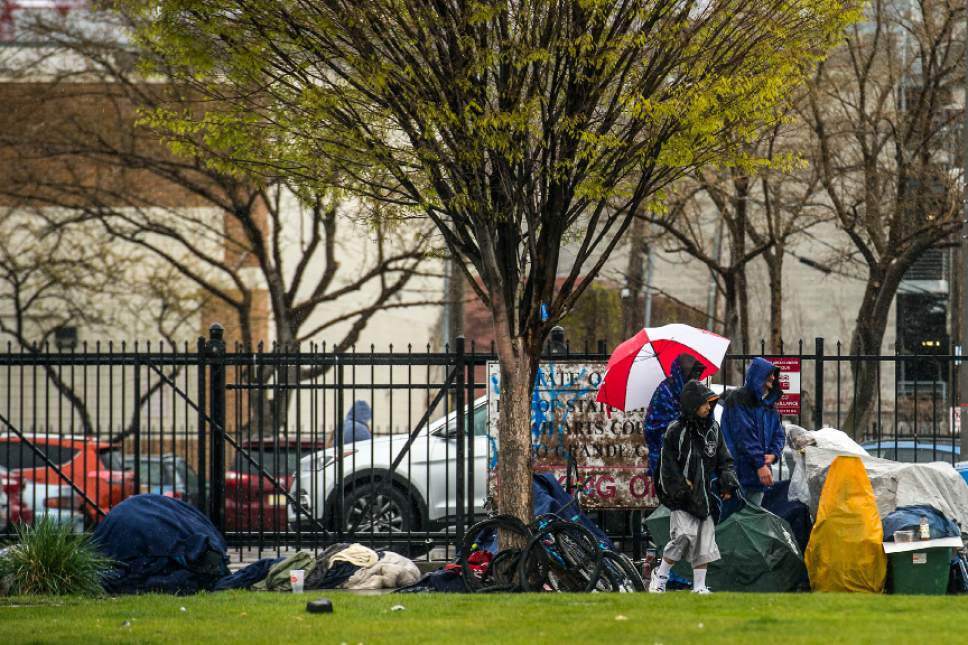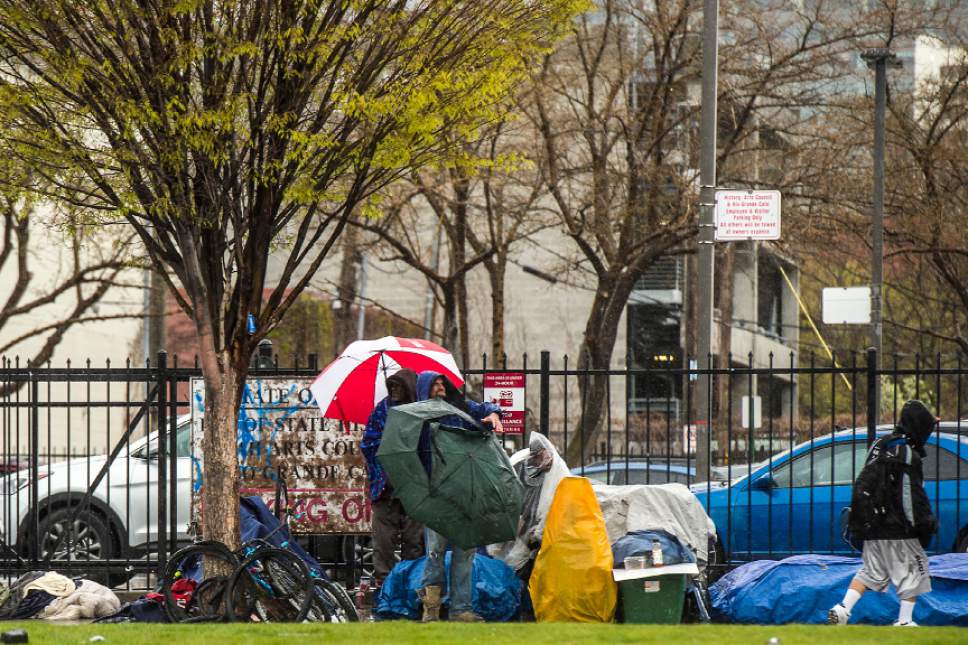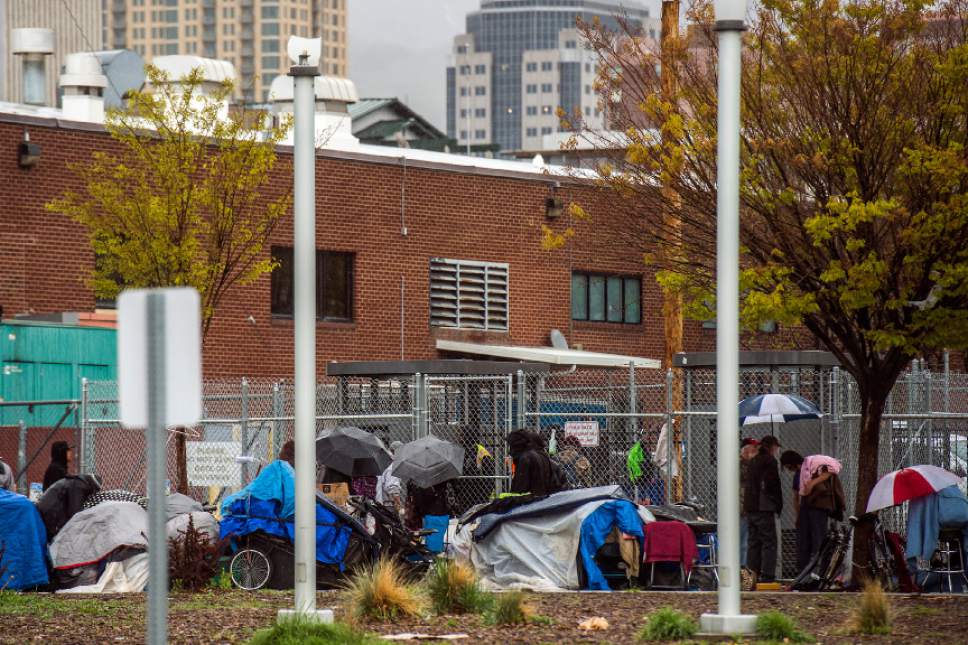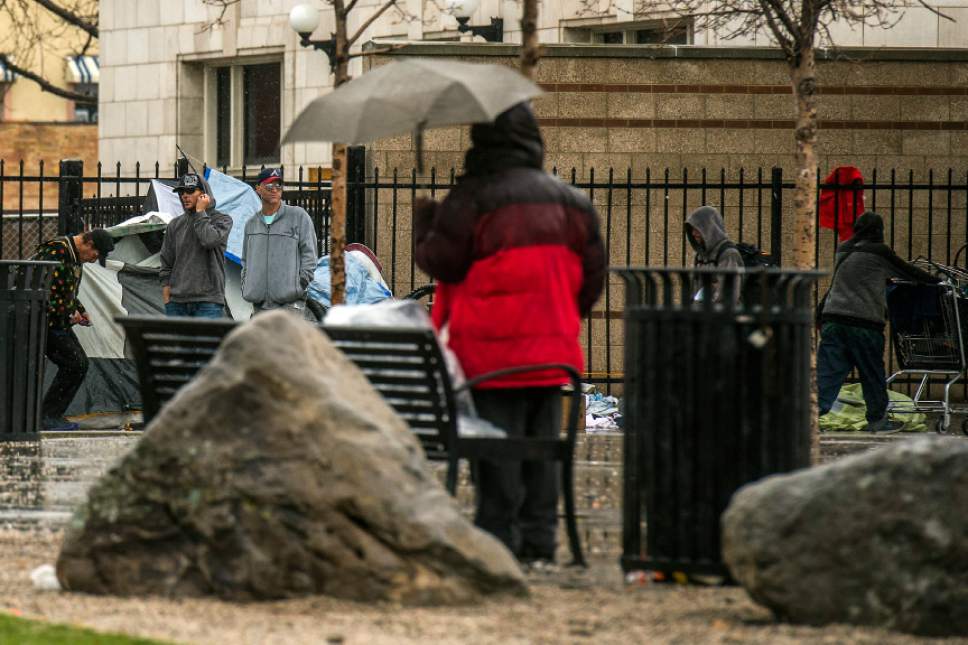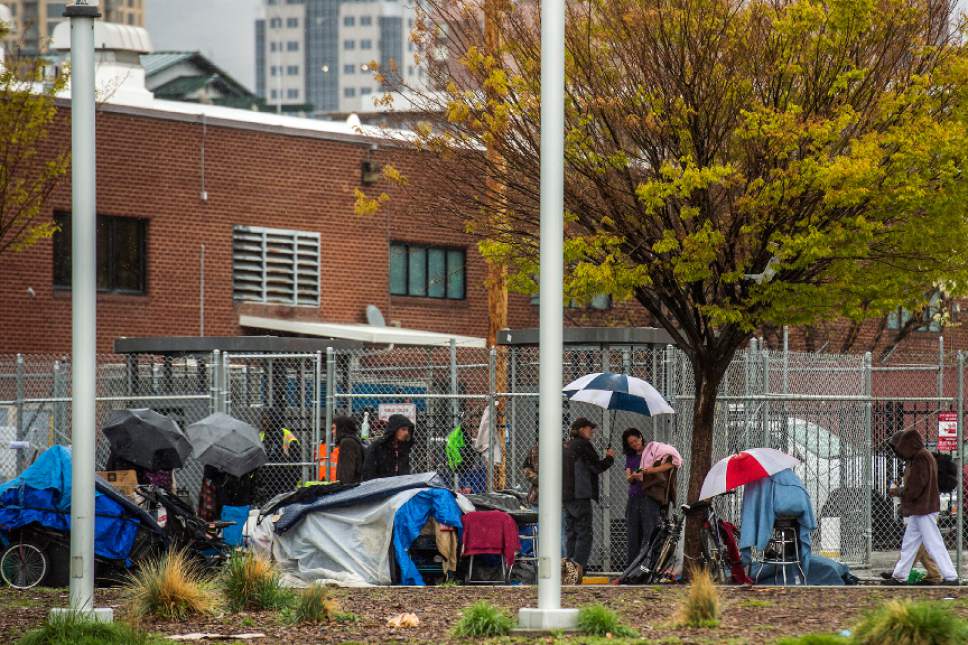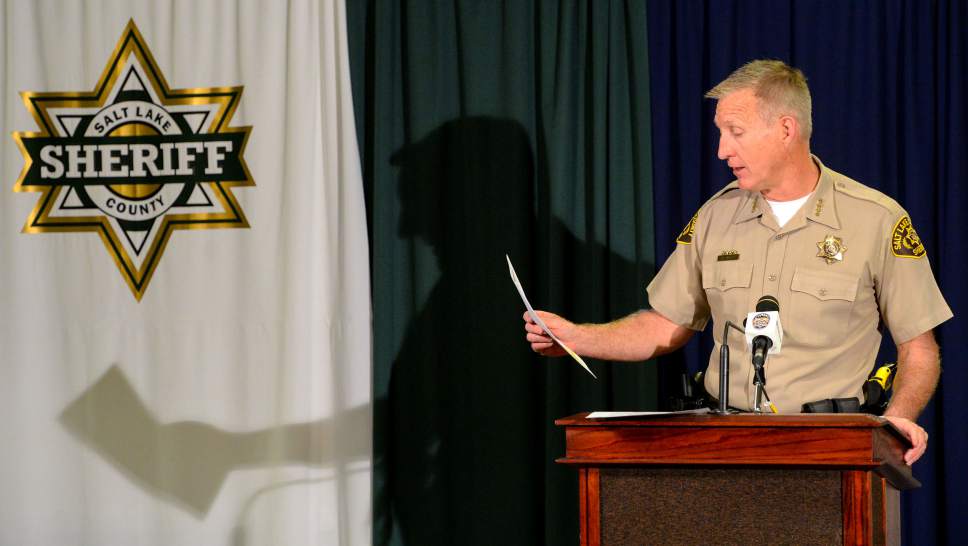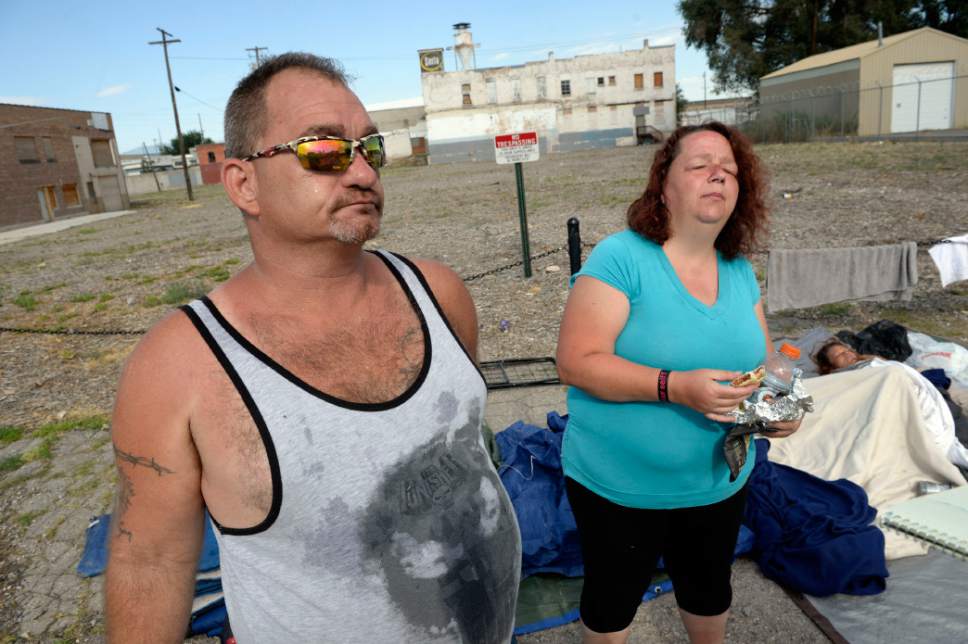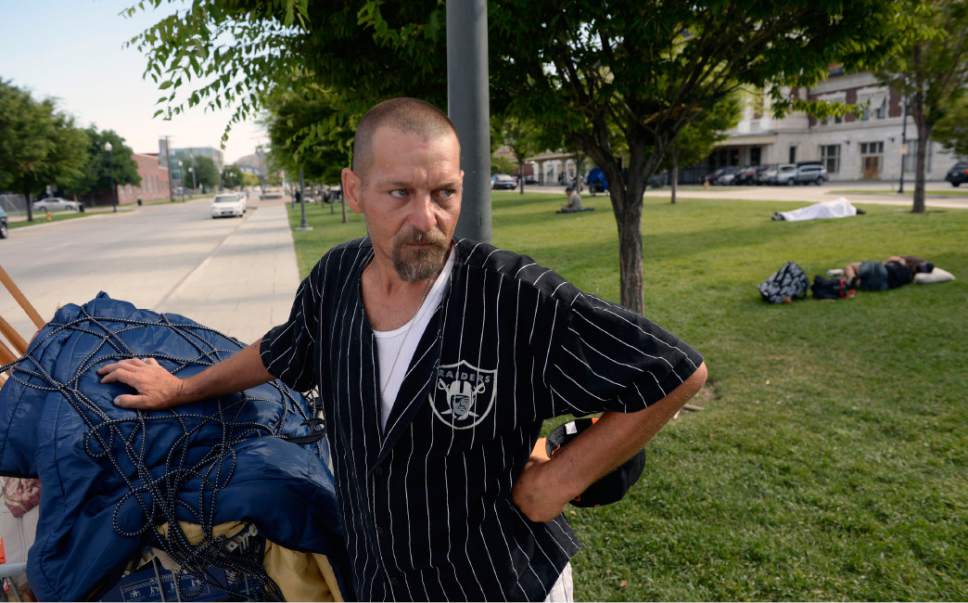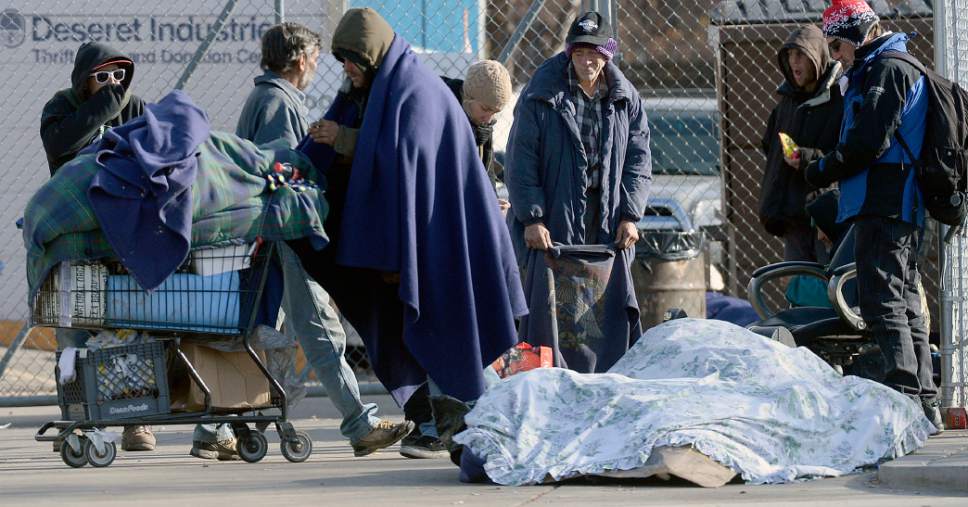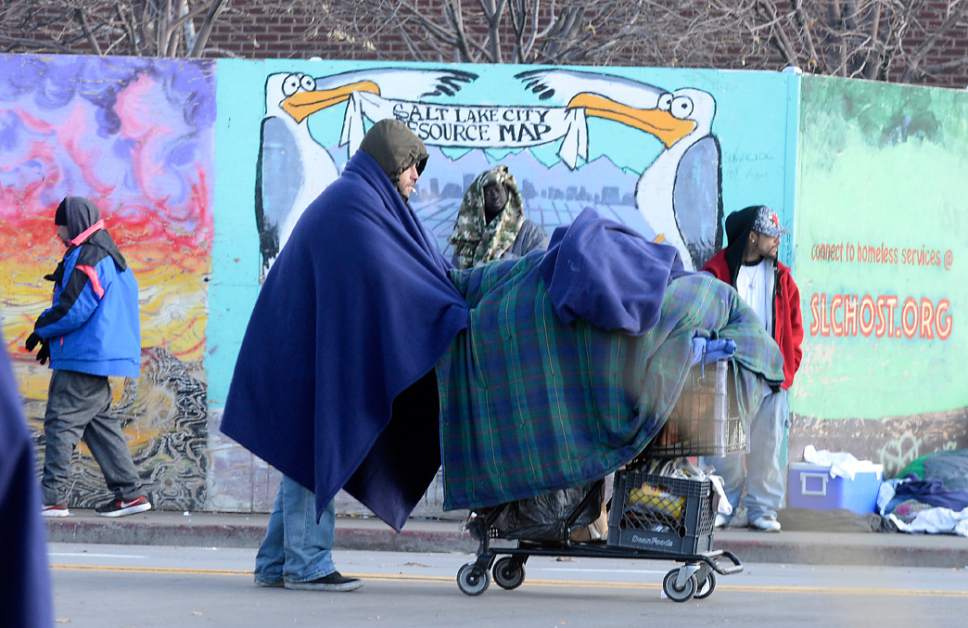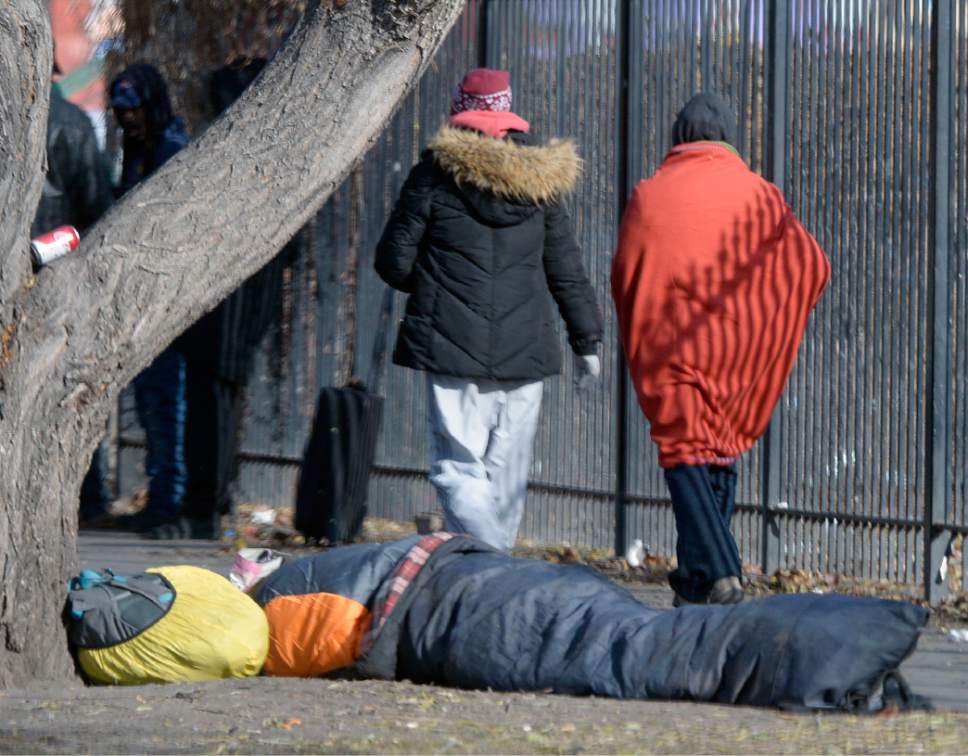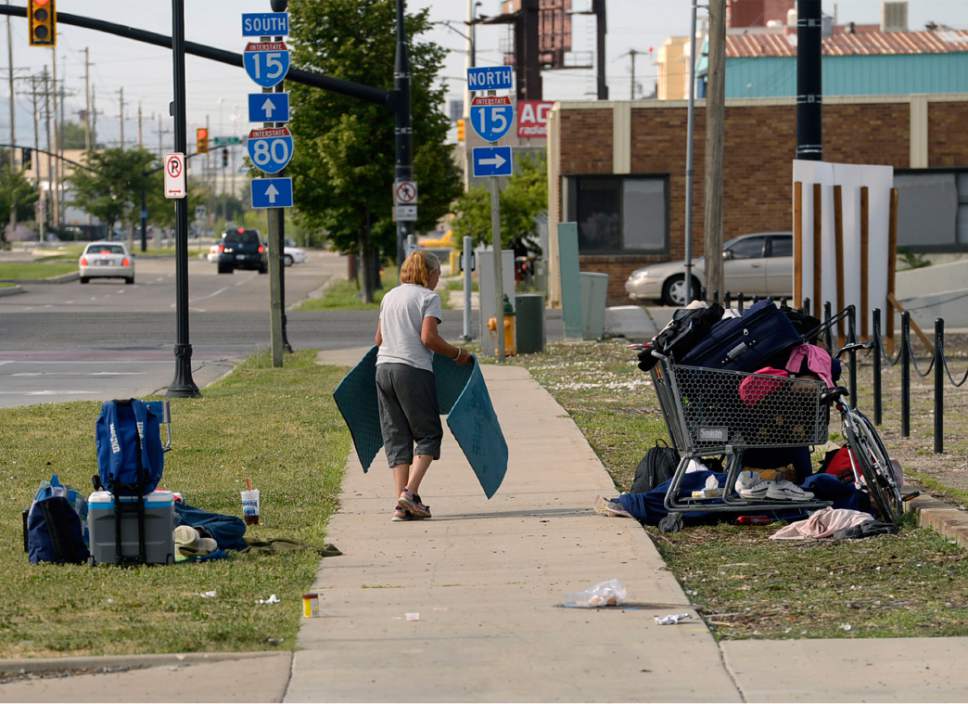This is an archived article that was published on sltrib.com in 2017, and information in the article may be outdated. It is provided only for personal research purposes and may not be reprinted.
Salt Lake County Sheriff Jim Winder's 21-point plan to deal with homelessness downtown has grabbed the attention of the American Civil Liberties Union of Utah, which said in a statement that the proposal may run afoul of the U.S. Constitution.
Winder's plan would reduce from about 1,100 to 200 the population of the Road Home shelter on Rio Grande Street by June 1, would create a regulated campground at 100 S. 600 West, and would crack down on panhandling, among other things.
The sheriff's proposal, made public last week, would necessitate re-working and enforcing an anti-camping ordinance in Salt Lake City.
"I'm tired of people saying there is no way to get a handle on this," Winder said last week. "Enough committees ... It's spring 2017 — let's do something."
In response, the ACLU urged caution and restraint.
"While we are not aware of any specific plans to put these recommendations into effect," the ACLU statement said, "we feel that it is important to inform elected officials and the public at this early stage that several aspects of the proposal are constitutionally suspect and could attract expensive litigation."
The statement cites Eighth Amendment legal challenges, where courts have ruled that laws aimed at preventing camping in public spaces when there is a lack of shelter space constitutes cruel and unusual punishment. It also leads to the criminalization of homelessness.
"Reducing substantive access to emergency shelter beds will likely strengthen Eighth Amendment claims against anti-camping ordinances and other laws aimed at people experiencing homelessness," the statement said.
Beyond that, the ACLU maintained that seizing the property of people camping in public spaces has led to successful lawsuits under the Fourth and 14th Amendments. "The government cannot seize and destroy essential belongings."
The ACLU's statement cites the National Law Center for Homelessness & Poverty: "Seventy five percent of cases challenging evictions of homeless encampments, or the seizure and destruction of homeless persons' belongings, achieved results that were favorable to the civil rights and civil liberties of people experiencing homelessness."
Not least, officials interfering with panhandling or begging would create constitutional issues for municipalities, according to the ACLU.
"Overreaching government interference in an individual's ability to engage in panhandling or begging creates serious constitutional issues for municipalities," the statement said. "Panhandling has long been recognized as political speech and protected, as such, by the First Amendment."
Salt Lake County's Collective Impact Steering Committee, which has been working toward a solution to the Rio Grande neighborhood crisis for 2 1/2 years, has not addressed Winder's 21-point plan.



